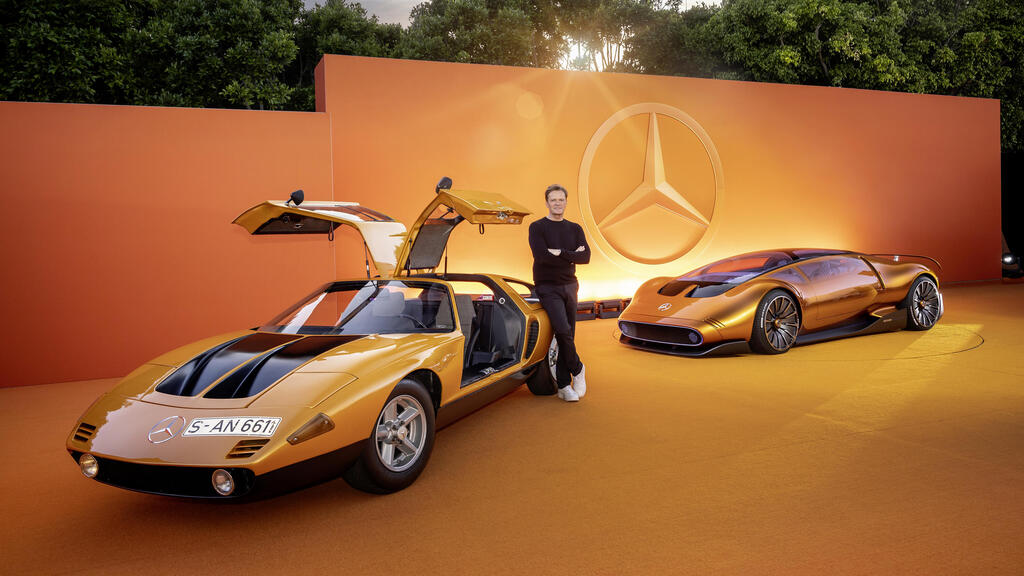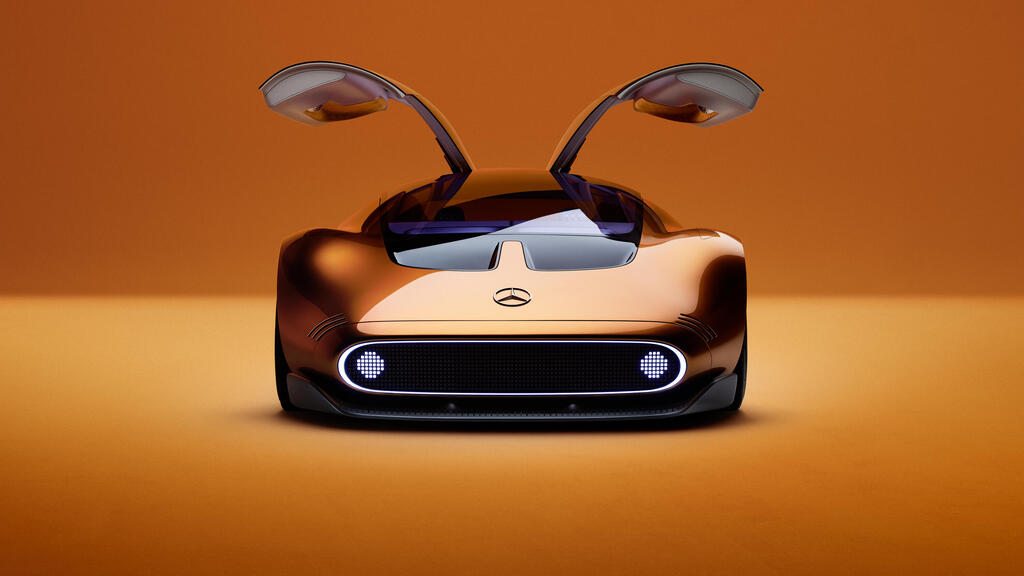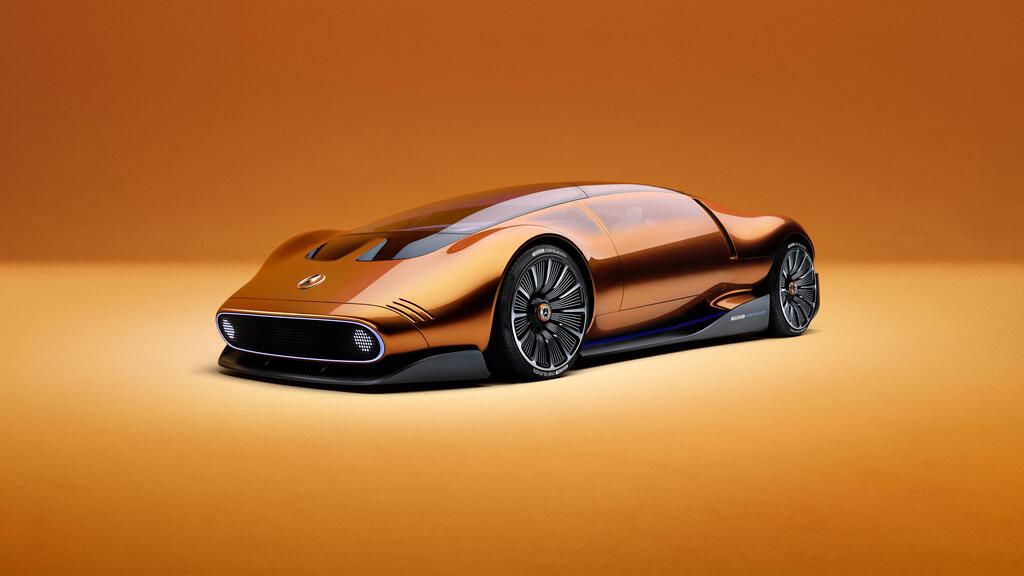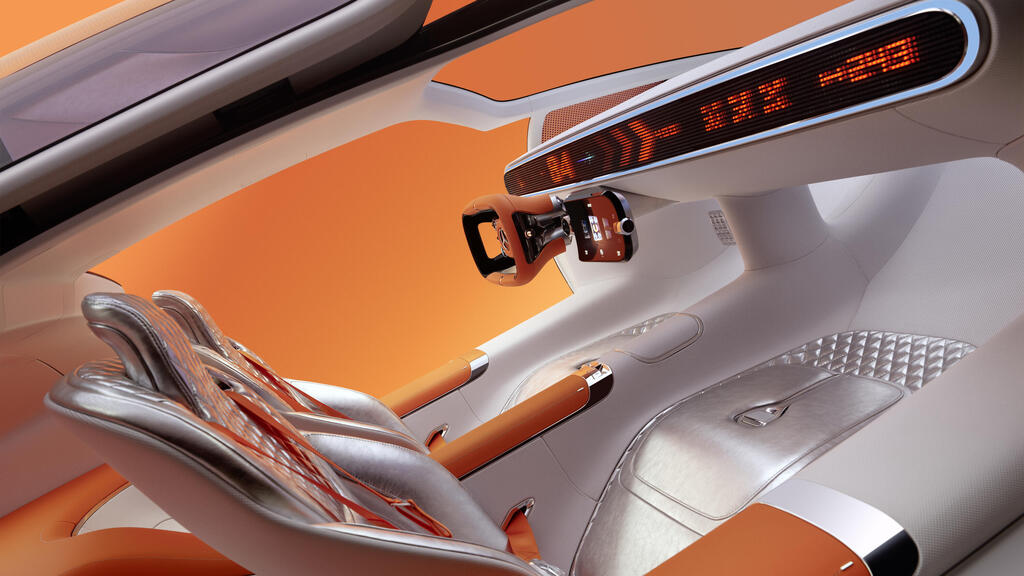The Vision 111 is a concept electric car that represents Mercedes-Benz's future direction. It serves as a response to the already-produced and upcoming Navara remake and the Yeshan X prototype. The design and conceptual inspiration for Vision 111 are drawn from the C111, a prototype that Mercedes used in the 1960s and 1970s as a motor laboratory to explore innovative technologies, some of which later made their way into a series of production models.
Read more:
In terms of design, the connection to the historical car is evident with its long hood, round front lighting units, gullwing doors, and super-low silhouette. These features are expected to provide it with an exceptionally low drag coefficient, an area in which Mercedes is currently considered a leader in the industry.
According to Mercedes, the passenger compartment is made entirely from recycled materials and includes two seats with safety harnesses resembling those found in racing cars, as well as a large screen that spans the entire width of the dashboard.
The Vision 111 will be the first car to exclusively utilize the innovative YASA motor, an electric motor manufacturer based in Britain that supplies powertrains to exotic manufacturers such as Ferrari, McLaren, and Koenigsegg, which was acquired by Mercedes-Benz about two years ago.
The axial-flux motor offers significant advantages over the radial-flux motors commonly used in electric vehicles today. These advantages include higher power density, enabling higher power output, and lower electrical consumption with significantly smaller dimensions and weight. In fact, it is expected to be one-third the size and weight of current electric vehicle motors. Therefore, it is anticipated to provide a dramatic improvement in performance, electric consumption affecting driving range, and utilization of the vehicle's interior space.
The Vision 111 also features a new battery system with different cell chemistry and configuration developed by Mercedes' Formula 1 team. These batteries are expected to offer improved durability and performance compared to current conventional batteries.
Overall, Mercedes has been regarded for years as one of the most esteemed manufacturers in the world, primarily due to its continuous introduction of technological advancements to the automotive industry. It is also considered advanced in the field of electric vehicles, currently offering the largest and most diverse range of zero-emission models.
However, to maintain its position, Mercedes now needs to work harder than ever, given the rapid progress in the transition to electric propulsion within the industry. Its competition not only includes the traditional German rivalry with BMW and Audi but also young, innovative, and daring manufacturers from North America and China.
Although specific performance data has not been revealed, the concept presented by Mercedes makes a strong impression and could potentially signify a significant leap forward for the German manufacturer and the industry as a whole. Only time will tell if this is indeed the case.





